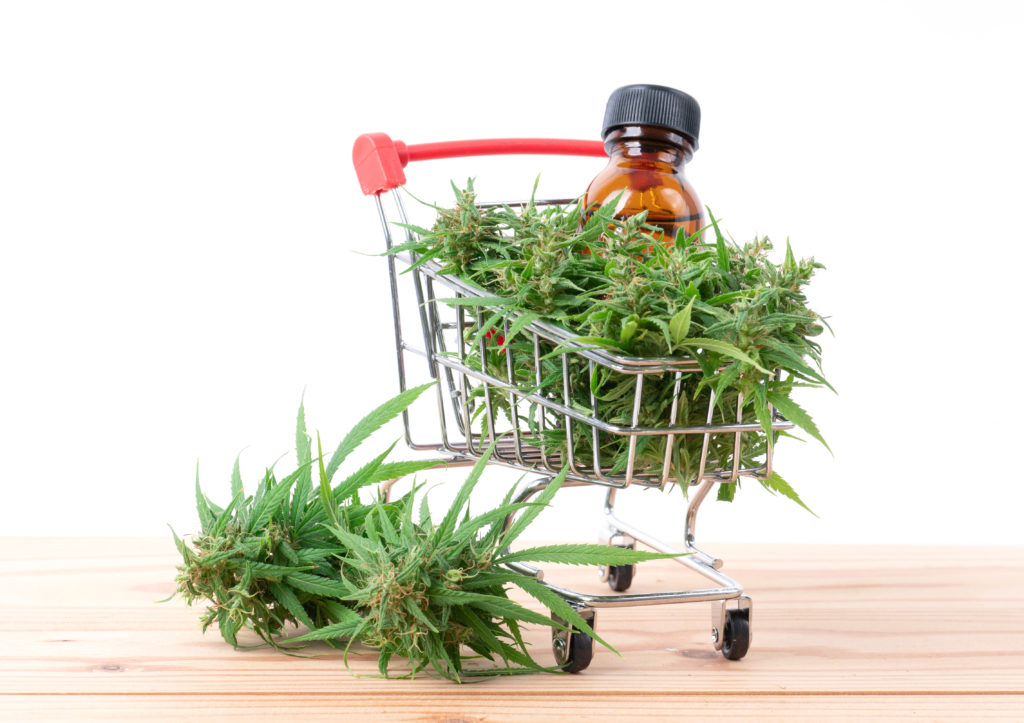Recent Posts
Archives
Categories

Marijuana and hemp are both closely related types of cannabis plants… with one key difference. While marijuana contains high amounts of the cannabinoid THC, hemp does not. Instead, hemp is heavy in CBD, a different cannabinoid with fewer effects when it comes to impacts on the mind and psyche.
With CBD increasing in popularity and accessibility, many cannabis loves have been swapping out THC products for CBD. There’s plenty of reasons why people are making the switch from marijuana to hemp, and a ton of little-known perks that might come with hemp and CBD products.
Defining Marijuana v.s. Hemp
Before we dive into the benefits of switching to hemp, it is helpful to know what differentiates marijuana from hemp.
As mentioned earlier, marijuana and hemp are both types of cannabis plant, the former containing high THC content, and the latter containing high CBD content.
Legally, hemp is defined as any cannabis plant that contains less than 0.3% THC. Hemp must also have high levels of CBD, usually at least around 12% and ranging up to 20%.
Why do People Make the Switch to CBD?
Non-Psychoactive
While the compound THC is known for its strong psychoactive qualities, CBD is non-psychoactive. This means that with hemp’s extremely low THC content, the plant does not cause the “high” associated with marijuana.
Basically, hemp and CBD products cause no hallucinations, racing thoughts, impaired thinking, or any of the other common side effects associated with Marijuana.
Totally Legal
Unfortunately, cannabis has a long and tumultuous history in the United States. However, marijuana currently has a more convoluted legal status than hemp.
All hemp and CBD products are legal in the U.S., with restrictions. While regulations vary across states, anyone over 21 should have access to CBD throughout the country. (See the 2018 Farm Bill for more information).
This is not the case with marijuana, which is not legal federally, and has varying legal status across states. Although more states are continuing to legalize access to marijuana, it is far less readily available than hemp.
Still Offers Effective Symptom Relief*
Although CBD does not cause the same mind-altering effects as THC, it still exhibits a variety of possible healing properties. CBD might relieve a wide range of symptoms without the side effects of THC.
A few of the many issues that CBD might address include:
- Chronic pain
- Joint inflammation
- Insomnia
- Anxiety and stress
- Depression
- Fatigue
- PTSD
Often More Affordable
Probably because hemp is more widely legal, hemp products are often more affordable than marijuana.
Hemp flower, CBD oil, and other hemp products can come at attainable prices that give you more use for your dollar than marijuana.
Other Benefits of Switching to Hemp/CBD
CBD Comes in the Same Forms as THC
One appealing aspect of making the switch to hemp and CBD products is that these products come in the same forms as THC. Whether you like to smoke bud, take concentrated oil drops, or eat edibles, you can find both THC and CBD products that fit your needs.
This means that you do not have to establish entirely new habits when you switch to hemp. If you enjoy smoking, you can continue to smoke high-CBD hemp in substitute for marijuana. Since the taste and feel are the same, this can make it easier to make a smooth transition to hemp
Easily Order Online
Because hemp is fully legal, it is much easier to access. Instead of seeking out a dispensary or local delivery method, you can buy hemp and CBD products online and have them shipped directly to your door.
This added convenience makes CBD much easier to get your hands on.
Transition from Marijuana to Hemp Gradually
Varying scales of THC and CBD contents in cannabis make it easy to make the transition to CBD gradually. If you are used to using high amounts of THC, you can start transitioning over to a higher CBD content and eventually to using no marijuana at all.
Once you fully cut down on THC, you will begin to see the amazing benefits of CBD, and become one of the cannabis lovers who’s glad they made the switch!
*Disclaimer: These statements have not been evaluated by the Food and Drug Administration. This product is not intended to diagnose, treat, cure or prevent any disease.
